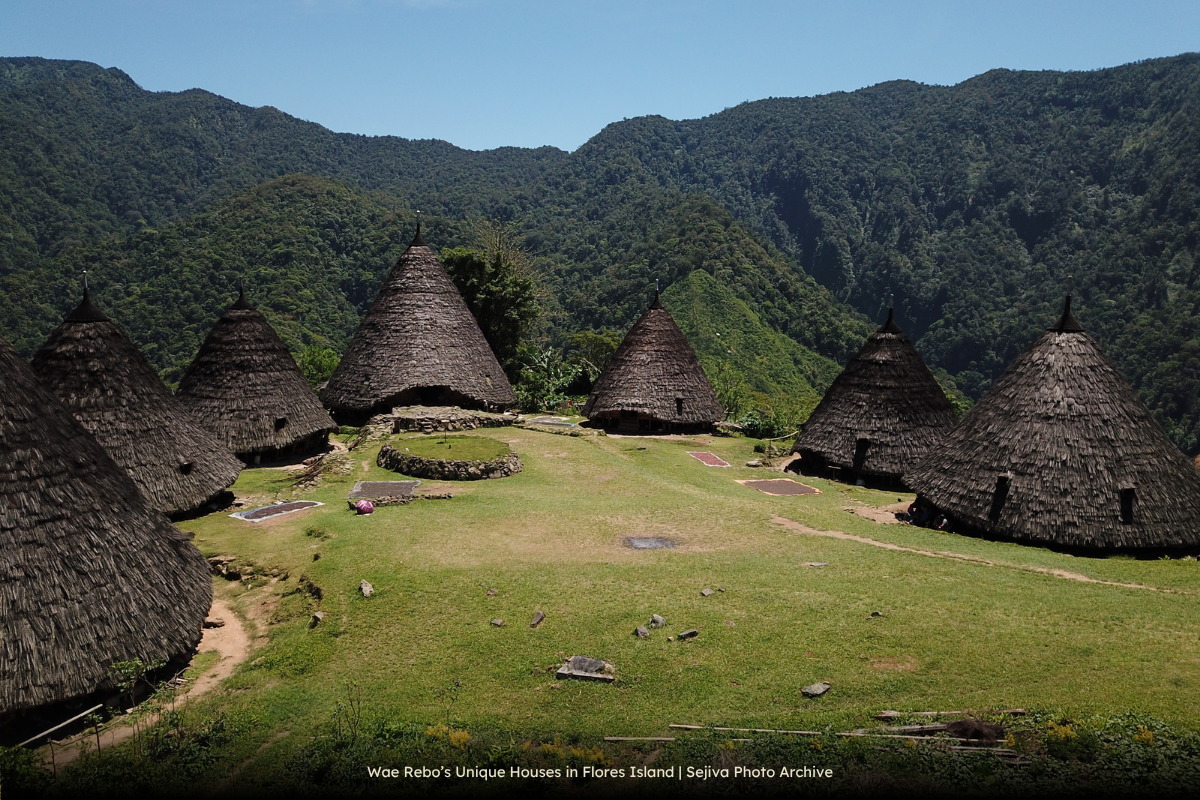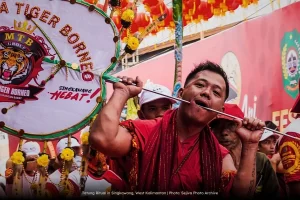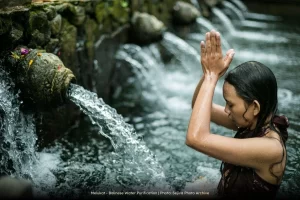introducing flores island
Sometimes, what we need isn’t more noise or more plans, but a return to what feels real and grounding. Flores Island, located in eastern Indonesia, offers exactly that. Stretching over 350 kilometers from west to east, Flores is part of the Lesser Sunda Islands, sitting between Sumbawa and Timor. Despite being one of the largest islands in the region, it’s still considered a hidden gem—rich in tradition, nature, and peace.
The island’s name, “Flores,” meaning “flowers” in Portuguese, was given by 16th-century missionaries who were struck by its natural beauty. It’s an apt name. The island bursts with color and life, from emerald rice fields to volcanic crater lakes, from lush forests to vivid coral reefs beneath the Flores Sea.
Home to over 1.8 million people, Flores is a cultural mosaic. More than 14 distinct ethnic groups live here, each with their own languages, customs, and traditional houses. While the national language is Bahasa Indonesia, many locals speak regional dialects like Sikka, Ngada, and Manggarai. The island is also predominantly Catholic—a unique trait in a mostly Muslim country—thanks to early Portuguese influences, as seen in the many colonial-era churches still in use today.
why you should visit flores island
If you’re craving more than just a beautiful backdrop for your vacation photos, Flores delivers something deeper. It’s a place where you can actually feel the stories—etched into the stones of ancient villages, whispered by waves that lap gently against the Flores Sea, and shared generously by the people who call this island home.
From the iconic Komodo dragons of Komodo National Park to the humble street stalls of Labuan Bajo, Flores offers a unique balance of adventure and serenity. There are underwater coral gardens that rival the Maldives, hidden waterfalls, sacred sites, and sunrises that make you stop mid-breath.
But more than anything, Flores offers space. Space to reconnect—with nature, with culture, and with yourself.
must-visit destinations in flores island
labuan bajo: the gateway to adventure and stillness
Perched on the island’s north coast, Labuan Bajo used to be a sleepy fishing village, known only to divers and intrepid backpackers. Today, it’s blossomed into a laid-back harbor town, the kind where sunsets over the water feel like daily miracles and conversations with locals linger long after the day ends.
As the launching point to Komodo National Park, Labuan Bajo is where most travelers begin. But don’t just pass through. Stay a while. Wake early for coffee overlooking the sea. Browse the vibrant markets. Talk to the fishermen. Let the slower pace seep into your bones.
Eco-resorts and sustainable homestays have popped up in recent years, offering ways to experience comfort without compromising impact. Whether you’re diving into the depths of nearby coral reefs or simply watching the sky change colors at dusk, Labuan Bajo reminds you to breathe.
komodo island: where myth meets reality
Of course, the highlight for many travelers is Komodo Island, part of the legendary Komodo National Park. This is the only place on Earth where you can see the mighty Komodo dragons—prehistoric giants that roam freely in their natural habitat.
But the magic of Komodo isn’t just about the dragons. Hike to panoramic viewpoints for jaw-dropping vistas, where the land unfurls into rolling hills and secluded bays. Swim with manta rays. Sail to Rinca, Komodo’s quieter sister island, for a more intimate wildlife experience.
Above water or below it, Komodo stirs something ancient within you. It’s wild, raw, and humbling—reminding us of the power and beauty of the natural world.
Also Read: dieng plateau: nature’s wonder & cultural heritage
bajawa: heartbeat of highland culture
Travel inland, and you’ll find Bajawa, nestled among volcanic peaks in central Flores. Cool and misty, this mountain town feels like a different world altogether. It’s not just the scenery—it’s the spirit.
Here, time seems to stand still. Traditional villages like Bena and Gurusina offer windows into centuries-old cultures, where ancestral homes, megalithic stones, and ceremonial grounds still serve as the heart of daily life. The ethnic groups of Flores preserve customs that predate modern borders, speaking languages that carry ancient wisdom.
Spend a night or two here, soaking in hot springs, sipping locally-grown coffee, or joining a family for dinner in their home. You’ll leave with more than memories—you’ll leave with perspective.
maumere: where serenity finds you
If you’re seeking peace, Maumere is where it lives. Located on Flores’ eastern coast, this quiet town hugs the shoreline like a secret. With its tranquil beaches, gentle tides, and colorful reefs, Maumere feels like a gentle exhale after a long journey.
It’s also a hub of cultural richness. Here, 16th-century churches stand side-by-side with handwoven ikat textiles, and traditional music still echoes during local ceremonies. Despite its remote location, Maumere welcomes visitors warmly—with sincerity, not spectacle.
Snorkel in turquoise waters, explore remote islands, or simply sit by the shore and watch the world go by. In Maumere, slowness is not just allowed—it’s encouraged.
impact travel: slow down and soak in the serenity
At Sejiva, we believe travel should be more than movement—it should be meaning. And Flores Island embodies the very spirit of purposeful travel. Here, you’re not just a visitor. You’re a guest. A student. A steward.
Choosing to travel slowly and thoughtfully allows for deeper experiences and more authentic connections. It also means making choices that benefit the places we explore—supporting local peoplesguides, staying in eco-conscious accommodations, and honoring local traditions.
Flores is a beautiful reminder that serenity isn’t found in speed or luxury—but in presence. Whether you’re meditating on a quiet hilltop in Bajawa or listening to a village elder tell stories by firelight, every moment becomes richer when you choose to travel with intention.
best time to visit flores island for nature lovers
For nature lovers, the best time to visit Flores Island is during the dry season, from April to October. During these months, the weather is warm and sunny, the seas are calm, and the island is at its most vibrant.
If you’re planning to explore Komodo National Park, the mid-year months—June to August—are perfect for wildlife sightings and snorkeling among coral reefs. This is also the ideal time for trekking and island-hopping adventures, as visibility and accessibility are at their peak.
That said, the wet season (November to March) brings its own charm. Lush greenery blankets the hills, waterfalls roar to life, and the island feels even more tranquil with fewer tourists. Just be mindful of weather-related delays if you’re heading to more remote areas.
Whatever the season, Flores welcomes those who are open to experiencing nature not as a backdrop, but as a teacher.
Also Read: mount rinjani: hidden paradise in lombok
let flores find you
Flores Island doesn’t just ask you to visit—it invites you to feel. To pause. To breathe. To reconnect with the wonder that gets buried beneath busy days and endless screens. Here, you’ll find raw nature, ancient culture, and the kind of peace that lingers long after your bags are unpacked.
But more than that, Flores offers a chance to travel differently. From the bustling charm of Labuan Bajo to the ancient spirit of Bajawa, from the raw beauty of Komodo to the coastal calm of Maumere, Flores invites you to experience travel in its most human form: full of connection, curiosity, and care.
At Sejiva, we believe in the power of Travel Positive, a way of exploring the world that gives more than it takes. It’s not just about avoiding harm; it’s about creating good. Supporting local communities, protecting ecosystems, and choosing experiences that regenerate, not deplete. Whether you’re walking through a sacred village, snorkeling above untouched reefs, or learning traditional weaving from a local artisan, every step can help make the island, and you, better.
This isn’t just a trip. It’s a conscious journey. A gentle rebellion against rushed itineraries and empty experiences. It’s about presence, intention, and impact.So if you’re craving more than postcards and photo ops, if you’re ready for travel that leaves footprints of kindness and purpose, let Sejiva guide you to Flores.










